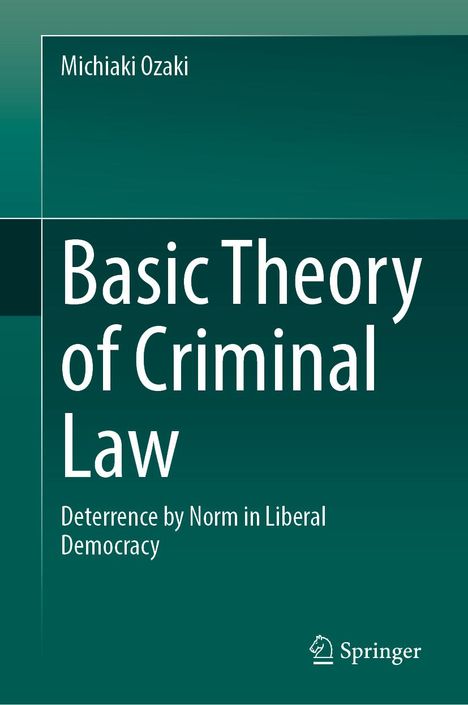Michiaki Ozaki: Basic Theory of Criminal Law, Gebunden
Basic Theory of Criminal Law
- Deterrence by Norm in Liberal Democracy
(soweit verfügbar beim Lieferanten)
- Verlag:
- Springer, 09/2025
- Einband:
- Gebunden
- Sprache:
- Englisch
- ISBN-13:
- 9789819508150
- Artikelnummer:
- 12338201
- Umfang:
- 156 Seiten
- Gewicht:
- 405 g
- Maße:
- 241 x 160 mm
- Stärke:
- 15 mm
- Erscheinungstermin:
- 28.9.2025
- Hinweis
-
Achtung: Artikel ist nicht in deutscher Sprache!
Klappentext
Introduction.- Human Decision and Determinism.- Purposes of Punishment and Normative Deterrence -- First Principle of Substantive Criminal Law.- Constitutional Freedom and Rational Criminal Legislation for Its Protection -- Second Principle of Substantive Criminal Law.- System of Substantive Criminal Law Based on Normative Deterrence.- Introduction.- Fundamental Viewpoints for the Analysis of the Criminal Justice System.- Adversarial System in the United States of America.- Historical Development of the Criminal Justice System.- Underlying Common Principles of the Criminal Justice System.- Introduction.- Basic Theory of the Methods for the Study of Criminal Law.- Methods.- Conclusion.- Science of Sentencing.- Investigation of Organized Crime in the United States of America -- Focusing on the Investigation of Federal Crime.- Index of Terms.- Index of Personal Names.


